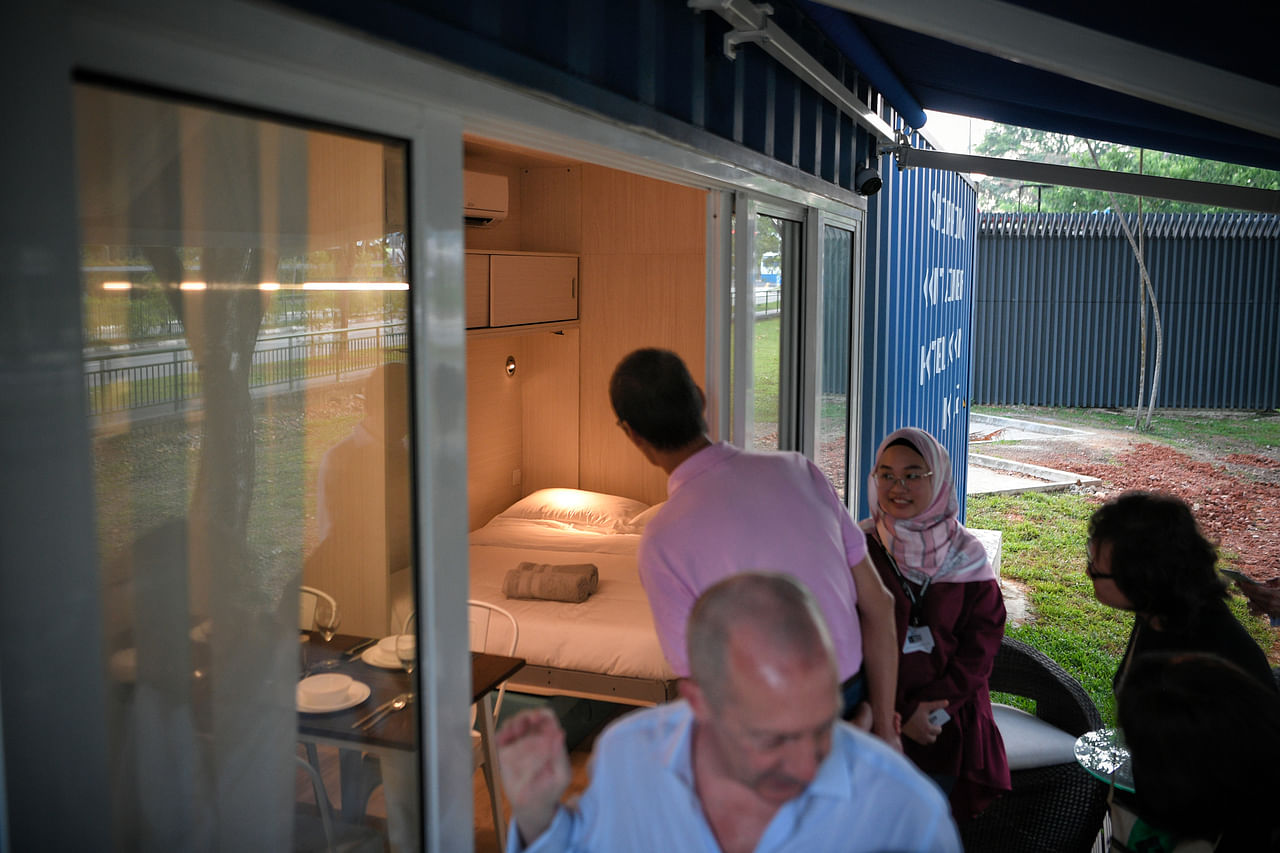Shipping containers make a suite change for staycations off the grid
Sign up now: Get ST's newsletters delivered to your inbox
SINGAPORE - Singapore's newest hotel is not a swanky tall building downtown but a couple of repurposed shipping containers at JTC Corporation's start-up cluster, Launchpad @ one-north.
The Shipping Container Hotel opened on Friday (Jan 17) so Singaporeans can stay at unusual locations where typical inns would not be found.
This innovative proposition is also a result of help from the Pro-Enterprise Panel (PEP) under the Ministry of Trade and Industry (MTI), which collaborates with government agencies and businesses to streamline rules and regulations with the aim of reducing regulatory burden.
Hotel founder and chief executive Seah Liang Chiang said the PEP approved his idea about a year ago after he sought its help.
"I wanted to give Singaporeans the experience of having a staycation with a difference," he noted.
"Right now, people go to Sentosa, Marina Bay Sands or Orchard Road, but I wanted them to experience living off the grid. I approached MTI and they told me to apply for the First Mover Framework."
The framework uses government assets to test out new business concepts.
Mr Seah was offered space at the Launchpad, where he now has two containers that have a maximum capacity of eight guests.
Each 280 sq ft container has been turned into a fully air-conditioned one-bedroom suite with two queen sized-beds, a living room, dining room, full kitchen, bathroom and outdoor decks.
A night at the hotel will cost about $150 to $200, depending on the day.
The total cost of repurposing each container and connecting it to plumbing and electricity was around $70,000 to $110,000.

One of two container hotel units at the JTC One-North @ Launchpad on 17 January, 2020.
PHOTO: ST

The interiors of one of two container hotel units at the JTC One-North @ Launchpad on 17 January, 2020.
PHOTO: ST
Senior Minister of State for Trade and Industry Chee Hong Tat said at Friday's launch: "There are many businesses with good innovative ideas and new concepts, and they need a place where they can try it out and prove that their concept works. If it works they can scale it up and take their idea further."
He added that the PEP and First Mover Framework help companies to break the problem of having no track record of testing their ideas when they look for business partners.
"This allows them to use our government sites to show the proof of concept, demonstrate that it works and then they can go further depending on market demand."
Mr Chee said the role of the PEP is also to link business owners with government agencies, especially if many authorities are involved.
He added that there is value in supporting innovation: "We don't know whether the idea will succeed, but the whole purpose is to try it out and assess it. Some will succeed, some will not and that's part and parcel of experimentation.
"If we don't have the willingness to accept some failure, then we can't innovate."
Mr Seah eventually hopes to have 50 containers spread across 20 locations islandwide, with the concept expanding to Malaysia and Indonesia.
He plans to move the containers every two to three years to new destinations.
Visitors can book at the hotel from Jan 18 on the company's website.


